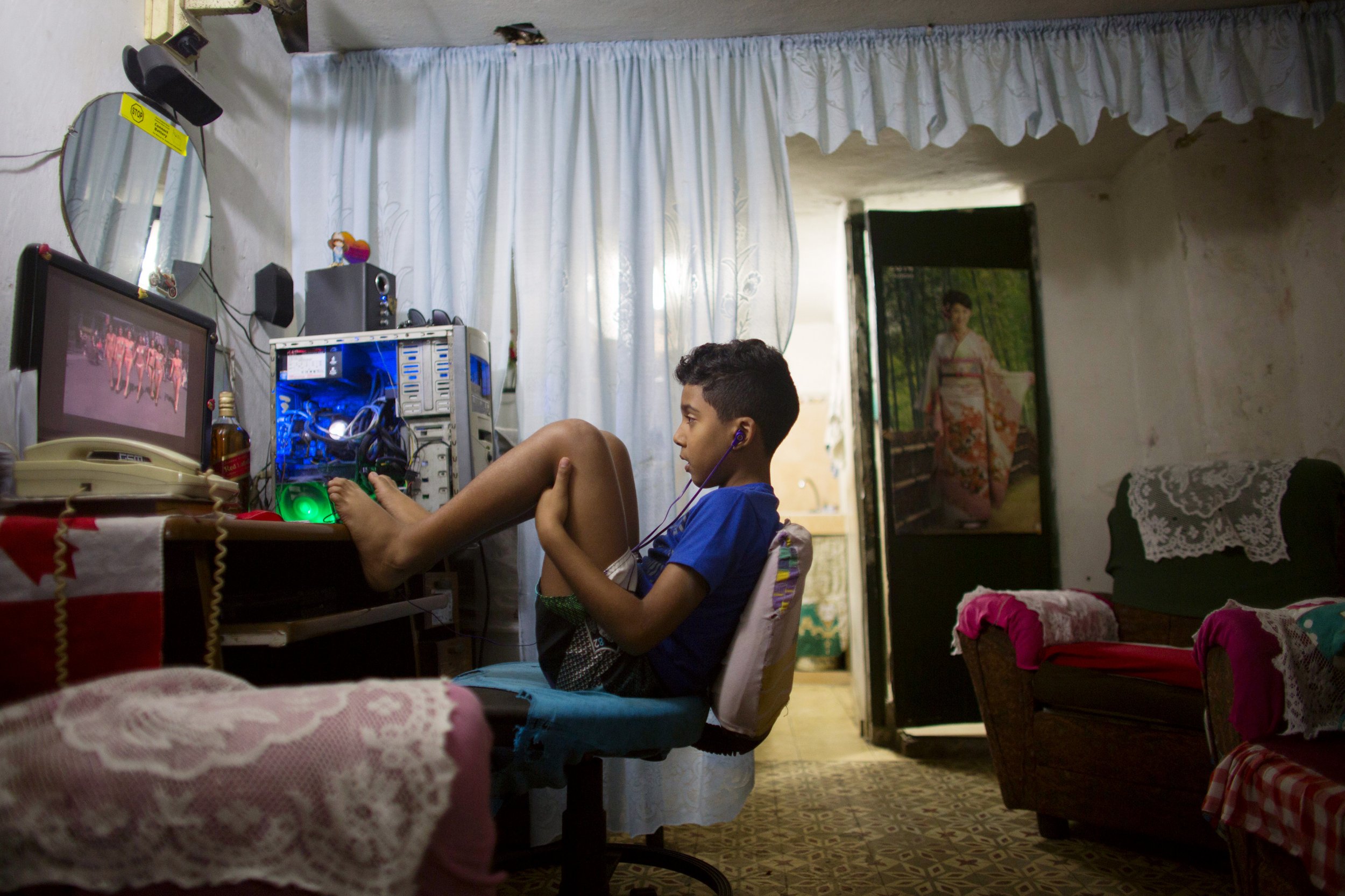
There is a seemingly endless supply of videos on YouTube showing the tiniest of tots using smartphones or tablets, and nearly all children at some point see things on television they probably shouldn't. Pediatricians know this, and they're worried. In fact, the concern is so pervasive that the American Academy of Pediatrics, the country's leading expert in children's health, has published recommendations to guide health care providers, parents and other caretakers on age-appropriate usage of media such as the internet, smartphones, video games and television. One thing is made clear: This is not an area for free-range parenting.
The panel on Friday issued comprehensive guidelines on creating a healthy "media diet" for kids of every age. These new policy recommendations, published in Pediatrics, offer a framework for how to safely and diplomatically introduce and expose children to the tools of the digital age. These experts recommend children use media technology only at approved and limited times.
Parents should "develop personalized Family Media Use Plans for their families that attend to each child's age, health, temperament, and developmental stage and ensure that each child can practice and benefit from the essentials for healthy growth and development, such as a healthy diet, good sleep hygiene, adequate physical activity and positive social interactions," according to the authors of the policy statements.
These guidelines recommend that children younger than 18 months not be exposed to screen media for uses other than video-chatting with distant friends or relatives. Parents should also be selective about programs and games presented to children between 18 months and 2 years old, and an adult family member should always be present when a toddler interacts with any screen media, the panel says. From ages 2 to 5, the panel recommends adults restrict media access to only one hour each day and be selective about what kids are exposed to in that time period. After age 6, media exposure should be monitored and restricted consistently.
There's no denying that the many forms of media have become a sort of junk food for young minds. According to research examined by the authors, kids are consuming way too much in single sittings and being exposed far too frequently. Children ages 8 and older on average watch two hours of television daily. Around three-quarters of teens in the U.S. own a smartphone, and a quarter of those young smartphone users describe themselves as constantly connected, so it's not surprising that around 75 percent of teens are using at least one form of social media. Young children also can't seem to tear themselves away from video games, and the multibillion-dollar industry thrives on the devotion some kids have to their PlayStations. It's estimated that four of five households own some video console or other device that provides an interactive video experience.
Another problem is that exposure is starting far too young. According to research compiled by the authors of the policy statements, children in the 1970s began regular television viewing at 4 years of age; today, children at 4 months of age start interacting with digital media, much of which is highly intuitive. That may not necessarily be true for your 81-year-old grandmother (a digital immigrant), but it likely is for toddlers who watch adults use and interact with devices. Kids today grow up as digital natives, with research showing that children as young as 24 months are capable of learning words from video or television, which is obviously why programs such as Sesame Street are beloved for their ability to enrich intellectual development.
The human brain is "under construction" throughout childhood and isn't fully developed until people are well into their 20s. The human brain has the ability to rewire its function (what's known as neuroplasticity) through experiences and exposure to events and stimuli.
"It is important to emphasize to parents that the higher-order thinking skills and executive functions essential for school success, such as task persistence, impulse control, emotion regulation, and creative, flexible thinking, are best taught through unstructured and social (not digital) play, as well as responsive parent–child interactions," the authors write.
Separate research links media exposure to other problems in human development: Children who spend a lot of time in front of the television are much more likely to be overweight or obese and to develop substance abuse problems or engage in risky sexual behavior.
One huge challenge is that the technology habits of grown-ups aren't exactly stellar. Adults are glued to smartphones (a recent Nielson report suggests adults spend 11 hours each day engaging in some form of media) and internet TV has made binge-watching behavior at least somewhat socially acceptable. That's why the authors of this policy statement also suggest parents consider their own behaviors before structuring a child's media time.
The quality of media exposure matters, they say, because studies find any interaction can have far-reaching influence on a child's development. For example, a huge body of research now shows that use of blue screens (such as those found on smartphones and tablets) can affect a person's quality of sleep. The light actually affects melatonin levels (the hormone involved in sleep) and can delay or disrupt a good night's rest.
The purpose of these guidelines, the authors say, is not to penalize children for wanting to use Facebook, but rather to encourage them to engage in other activities. Interacting with peers, playing outside and reading books are things that, at least partially, ensure a child becomes a high-functioning, fully formed adult.
Uncommon Knowledge
Newsweek is committed to challenging conventional wisdom and finding connections in the search for common ground.
Newsweek is committed to challenging conventional wisdom and finding connections in the search for common ground.
About the writer
Jessica Firger is a staff writer at Newsweek, where she covers all things health. She previously worked as a health editor ... Read more
To read how Newsweek uses AI as a newsroom tool, Click here.








